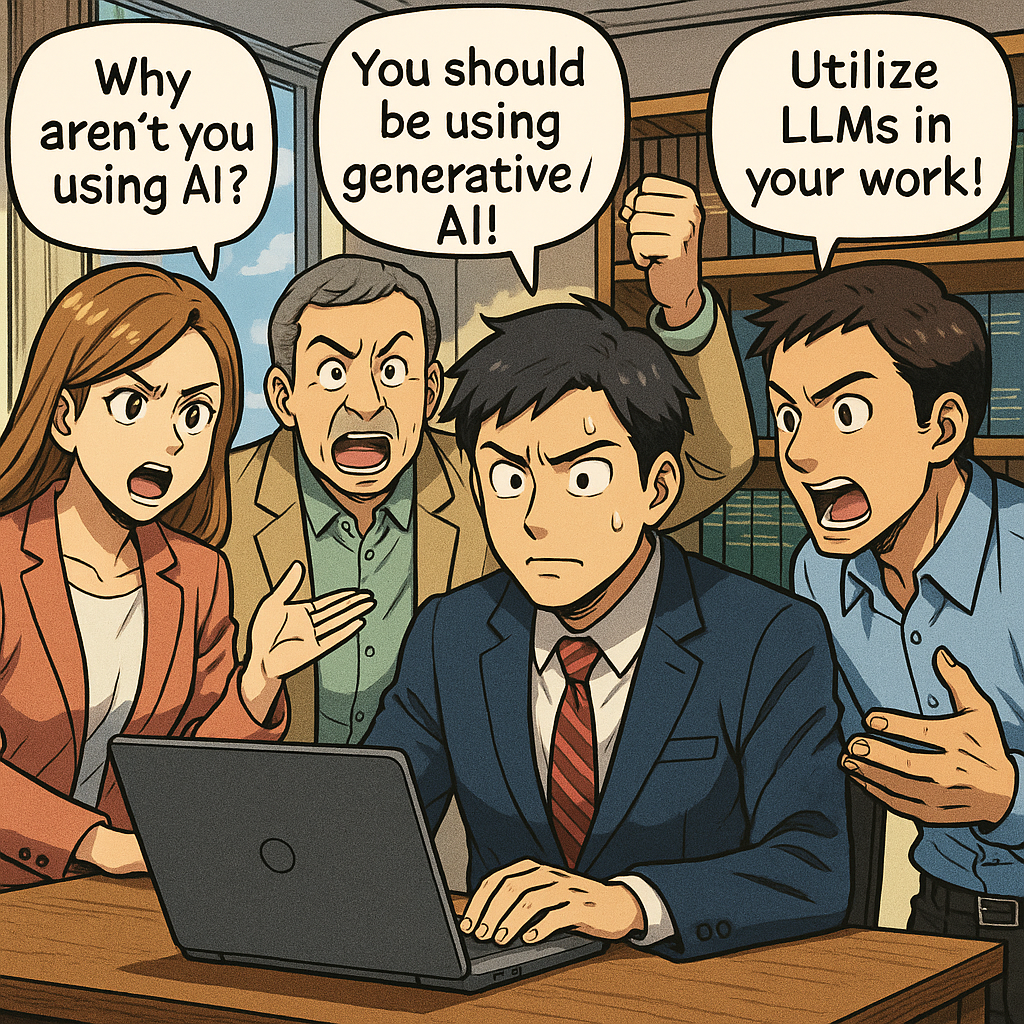MTC: Small Firm AI Revolution: When Your Main Street Clients Start Expecting Silicon Valley Service 📱⚖️
/The AI revolution isn't just transforming corporate legal departments - it's creating unprecedented expectations among everyday clients who are increasingly demanding the same efficiency and innovation from their neighborhood attorneys. Just as Apple's recent automation ultimatum to suppliers demonstrates how tech industry pressures cascade through entire business ecosystems, the AI transformation is now reaching solo practitioners, small firms, and their individual clients in surprising ways.
The Expectation Shift Reaches Main Street
While corporate clients have been early adopters in demanding AI-powered legal services, individual consumers and small business owners are rapidly catching up. Personal injury clients who experience AI-powered customer service from their insurance companies now question why their attorney's document review takes weeks instead of days. Small business owners who use AI for bookkeeping and marketing naturally wonder why their legal counsel hasn't adopted similar efficiency tools.
The statistics reveal a telling gap: 72% of solo practitioners and 67% of small firm lawyers are using AI in some capacity, yet only 8% of solo practices and 4% of small firms have adopted AI widely or universally. This hesitant adoption creates a vulnerability, as client expectations continue to evolve at a faster pace than many smaller firms can adapt to.
Consumer-Driven Demand for Legal AI
Today's clients arrive at law offices with unprecedented technological literacy (and perhaps some unrealistic expectations - think a jury’s “CSI” expectation during a long trial). They've experienced AI chatbots for customer service, used AI-powered apps for financial planning, and watched AI streamline other professional services. This exposure creates natural expectations for similar innovation in legal representation. The shift is particularly pronounced among younger clients who view AI integration not as an optional luxury but as basic professional competence.
Small firms report that clients increasingly ask direct questions about AI use in their cases. Unlike corporate clients, who focus primarily on cost reduction, individual clients emphasize speed, transparency, and improvements in communication. They want faster responses to emails, quicker document turnaround, and more frequent case updates - all areas where AI excels.
The Competitive Reality for Solo and Small Firms
The playing field is rapidly changing. Solo practitioners using AI tools can now deliver services that historically required teams of associates. Document review, which once consumed entire weekends, can now be completed in hours with the assistance of AI, allowing attorneys to focus on high-value client counseling and strategic work. This transformation enables smaller firms to compete more effectively with larger practices while maintaining personalized service relationships.
AI adoption among small firms is creating clear competitive advantages. Firms that began using AI tools early are commanding higher fees, earning recognition as innovative practitioners, and becoming indispensable to their clients. The technology enables solo attorneys to handle larger caseloads without sacrificing quality, effectively multiplying their capacity without the need to hire additional staff.
Technology Competence as Client Expectation
Legal ethics opinions increasingly recognize technology competence as a professional obligation. Clients expect their attorneys to understand and utilize available tools that can enhance the quality and efficiency of their representation. This expectation extends beyond simple awareness to active implementation of appropriate technologies for client benefit.
The ethical landscape supports this evolution. State bar associations from California to New York are providing guidance on the responsible use of AI, emphasizing that lawyers should consider AI tools when they can enhance client service. This regulatory support validates client expectations for technological sophistication from their legal counsel.
The Efficiency Promise Meets Client Budget Reality
AI implementation offers particular value for small firm clients who historically faced difficult choices between quality legal representation and affordability. AI tools enable attorneys to reduce routine task completion time by 50-67%, allowing them to offer more competitive pricing while maintaining service quality. This efficiency gain directly benefits clients through faster turnaround times and potentially lower costs.
The technology is democratizing access to legal services. AI-powered document drafting, legal research, and client communication tools allow small firms to deliver sophisticated services previously available only from large firms with extensive resources. Individual clients benefit from this leveling effect through improved service quality at traditional small firm pricing.
From Reactive to Proactive Service Delivery
Small firms using AI are transforming from reactive service providers to proactive legal partners. AI-powered client intake systems operate 24/7, ensuring potential clients receive immediate responses regardless of office hours. Automated follow-up systems keep clients informed about the progress of their cases, while AI-assisted research enables attorneys to identify potential issues before they become problems.
This proactive approach particularly resonates with small business clients who appreciate preventive legal guidance. AI tools enable solo practitioners to monitor regulatory changes, track compliance requirements, and alert clients to relevant legal developments - services that smaller firms previously couldn't provide consistently.
The Risk of Falling Behind
Small firms that delay AI adoption face increasing competitive pressure from both larger firms and more technologically sophisticated solo practitioners. Clients comparing legal services increasingly favor attorneys who demonstrate technological competence and efficiency. The gap between AI-enabled and traditional practices continues widening as early adopters accumulate experience and refine their implementations.
The risk extends beyond losing new clients to losing existing ones. As clients experience AI-enhanced service from other professionals, their expectations for legal representation naturally evolve. Attorneys who cannot demonstrate similar efficiency and responsiveness risk being perceived as outdated or less competent.
Strategic Implementation for Small Firms
Successful AI adoption in small firms focuses on tools that directly enhance the client experience, rather than simply reducing attorney effort. Document automation, legal research enhancement, and client communication systems provide immediate value that clients can appreciate and experience directly. These implementations create positive feedback loops where improved client satisfaction leads to referrals and practice growth.
The key is starting with client-facing improvements rather than back-office efficiency alone. When clients see faster document production, more thorough legal research, and improved communication, they recognize the value of technological investment and often become advocates for the firm's innovative approach.
🧐 Final Thoughts: The Path Forward for Small Firm Success
clients who see lawyers using ai will be more confident that lawyers are using ai behind the scenes.
Just as Apple's suppliers must invest in automation to maintain business relationships, solo practitioners and small firms must embrace AI to meet evolving client expectations. The technology has moved from an optional enhancement to a competitive necessity. The question is no longer whether to adopt AI, but how quickly and effectively to implement it.
The legal profession's AI transformation is creating unprecedented opportunities for small firms willing to embrace change. Those who recognize client expectations and proactively adopt appropriate technologies will thrive in an increasingly competitive marketplace. The future belongs to attorneys who view AI not as a threat to traditional practice, but as an essential tool for delivering superior client service in the modern legal landscape. Remember what previous podcast guest, Michigan Supreme Court Chief Judge (ret.) Bridget Mary McCormick shared with us in #65: Technologies impact on access to justice with Bridget Mary McCormick, lawyers who don’t embrace AI will be left behind by those who do!
MTC











